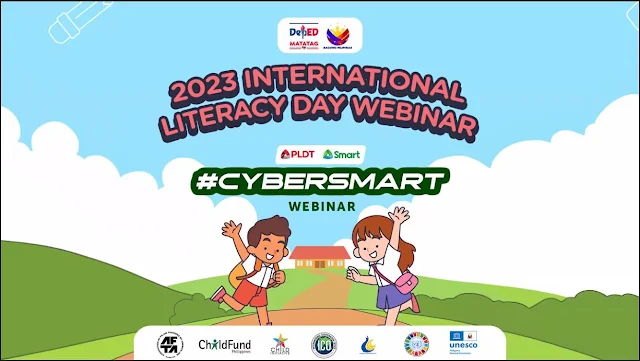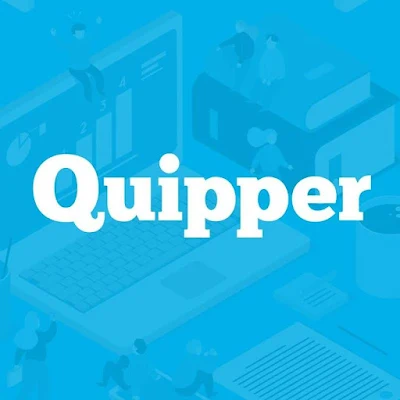EastWest Rural Bank (EWRB) continued its strong community involvement by supporting the Department of Education’s Brigada Eskwela 2025 through two focused efforts: the Annual Physical Test (APT) initiative and its flagship volunteer program, EWRB in Action. Both efforts were launched nationwide to support the physical, mental, and academic readiness of educators and learners alike under this year’s campaign theme, “Sama-sama para sa Bayang Bumabasa.”
DepEd and Microsoft Expand AI-Powered Literacy Initiatives Across the Philippines
The Department of Education (DepEd) and Microsoft continue to deepen their collaboration to improve literacy outcomes in the Philippines, leveraging artificial intelligence (AI) tools to empower educators and learners. This growing partnership reflects a shared commitment to democratize AI for the collective benefit of the education ecosystem, aligning with Secretary Sonny Angara’s five-point education agenda.
Cerebro Urges Pinoys to Sign a Petition for Educators’ Empowerment in the Season of Giving
Cerebro, an edtech company, is currently focused on reaching a new milestone of signatures for their petition aimed at improving the working conditions and resources available to Filipino teachers. In the spirit of empowerment and support, Cerebro encourages the public to join their advocacy for educators' well-being.
Globe Business hits the road with E-skwela Technology Roadshow to power tech-driven classrooms
As the education sector’s technology enabler, Globe Business earlier this year held an innovation-packed roadshow to ensure that all schools across the country get access to the latest digital tools. This effort aims to help revolutionize learning and equip students with the skills and knowledge needed to thrive in the challenges of the 21st century.
From May to July, the E-skwela Technology Roadshow made its way to Pangasinan, Laguna, Iloilo, Roxas, the Greater Manila Area (GMA), and Davao, providing educators the unique opportunity to connect with industry experts, experience digital solutions firsthand, and to empower their classrooms in hybrid education.
“We embarked on this exciting journey to deliver digital solutions to make sure that no school or student is left behind in this digital age,” said KD Dizon, Head of Globe Business. “Through this roadshow, we paved the way for academic institutions to tap into the latest frontiers of digital education para tuloy ang edukasyon, tuloy ang pag-asa,” she added.
One of the main features of the roadshow was the opportunity for participants to engage in discussions with experts, helping them gain a deeper understanding of how technology can reshape the future of their classrooms.
Shaping the Future of Classrooms with Technology
Engr. Ericson Dimaunahan, director of Mapua University’s Center for Teaching and Learning-Digital, emphasized the importance of cultivating future-ready schools amidst the evolving educational landscape and matching these with the most suitable technologies for the classroom.
“Changing the way we educate students could mean enabling learning beyond classrooms with the help of new technology. These changes aim to improve overall student outcomes and equip them to be future-ready,” said Dimaunahan.
Jim Tuscano, Founder of EmpowerEd Advocacy Program also underscored technology as a necessity to prepare students for the real world.
“The workforce now requires digital literacy. Therefore, equipping students with digital skills and knowledge will prepare them for their future jobs,” he said.
To showcase how educational institutions could drive innovation into the classrooms and elevate student engagement, Globe Business introduced a comprehensive suite of digital solutions and services fit for their needs. Among these, the Wela School System empowers educational institutions to efficiently manage their operational and administrative tasks while offering real-time monitoring of daily school activities through a single platform.
Another noteworthy introduction was ClassIn, an online classroom platform equipped with built-in teaching tools designed to make classes more interactive and engaging. It seamlessly combines online classes, chats, cloud drives, exams, and assignments into one platform.
Meanwhile, Zoom for Education allows for up to 300 participants in a meeting per license which is suitable for remote and hybrid learning, allowing students and teachers to engage and collaborate from different locations.
Zoom for Education and ClassIn both have integrated interoperability features with other applications, simplifying and enhancing the classroom experience for teachers and students within a single platform.
Globe Business has been at the forefront of bringing technology closer to the education sector. Its initiatives aim to empower Filipino educators with innovative ways to engage students in emerging learning environments. For more information on Globe’s education initiatives, services, and offers, visit https://www.globe.com.ph/education.html
PLDT and Smart cybersecurity bootcamp for teachers help fortify digital learning platforms
 |
| CyberSmart is the PLDT Group's premier cyber safety awareness campaign that equips online users with information and practical tips on protecting one’s self on- and offline. |
In celebration of the International Literacy Day, PLDT and Smart have enlisted teachers in fortifying digital learning platforms and turning them into safe spaces through CyberSmart. CyberSmart is the PLDT Group's premier cyber safety awareness campaign that equips online users with information and practical tips on protecting one’s self on- and offline.
“At PLDT and Smart, cybersecurity is everybody’s job. We hope that through CyberSmart—you embrace a culture of cybersecurity. Together, we can make the internet safer for all,” said Cathy Yang, FVP and Group Head of Corporate Communications at PLDT and Smart.
With phishing attacks on the rise, the CyberSmart bootcamp focused on helping teachers identify social engineering tactics.
 |
| Elijah Mendoza, Senior Manager for Digital Communications at Smart, cautioned against opening suspicious emails and links |
Elijah Mendoza, Senior Manager for Digital Communications at Smart, cautioned against opening suspicious emails and links. He also reminded teachers to avoid replying to strangers and to refrain from providing personal information as well as one-time passwords or OTPs to unknown callers. “Remember, banks never ask for OTPs,” he said.
 |
| Smart have enlisted teachers in fortifying digital learning platforms and turning them into safe spaces through CyberSmart. |
Khristian Pagurayan, Awareness, Training, and User Adoption Supervisor of PLDT and Smart’s Cyber Security Operations Group, helped teachers spot text scams. He said that the sender is usually unknown. The message contains too-good-to-be-true offers or promises a large amount of money. Victims are urged to immediately act on the offer by clicking a link that leads to a phishing domain.
Yves Gonzalez, Head of Government Affairs and Public Policy at Google Philippines, said that hackers employ visual confusion to steal user data. They copy the login page of a legitimate website on a malicious domain to lure users into thinking that they’re logging in to a secure domain.
Dr. Melinda dela Pena Bandalaria, Chancellor of UP Open University, reminded participants to use social media responsibly. Because of social media’s wide reach, she stressed the importance of verifying information before sharing them.
For over 20 years, the PLDT Group has supported the Department of Education in improving the country’s literacy through innovative and technology-enabled programs, and PLDT and Smart count this support as among their most important advocacies. Meanwhile, the efforts of PLDT and Smart to share CyberSmart tips are fundamental to the PLDT Group’s much broader program to elevate the quality of customer experience by protecting them from threats and cyber-attacks.
Together, these PLDT and Smart initiatives support the government’s Go Digital Pilipinas Movement and the Digital Infrastructure pillar of the Private Sector Advisory Council (PSAC), which seek to elevate lives of Filipinos through digital services.
Jordan Brand Expands its Wings Scholars Program to the Philippines
Jordan Brand Expands its Wings Scholars Program to the Philippines, as it help break down barriers to Higher Education
Samsung Electronics launches SPARK11 program to cultivate future Filipino innovators
Samsung Electronics Philippines Corporation (SEPCO) believes in the potential of young Filipinos and their skills to make a significant impact on society. With the Philippines’ youthful and dynamic population, Samsung is keen on tapping the Filipino youth and exploring their talents in developing world-class and cutting-edge technologies.
Quipper all set to support teachers and students this back-to-school
With the start of the new school year this August, teachers, and education leaders are now gearing up to ensure a smooth transition to face-to-face classes.
Schools have previously fully embraced distance-learning strategies to maintain unhindered learning. The Department of Education (DepEd) recently mandated that educational institutions return to conducting five days of in-person instruction starting in November.
Whether the chosen modality is face-to-face or blended, there is a need to ensure high-impact learning recovery programs for learners. A recent report by the World Bank Group noted that school closures in the last two years resulted in long-term impact and learning losses on schoolchildren.
Given these challenges, the same report recommends that educators monitor and assess students’ learning, which is critical in implementing learning recovery programs. This may include just-in-time assessments of each student’s learning levels and intensive tutoring. On the other hand, teachers must receive training in adaptive learning, which prioritizes children’s acquisition of essential skills while adapting instruction and pedagogical techniques to students’ abilities and requirements.
Because learning gaps are anticipated to vary among children, teachers must also be ready for lower and higher levels of learning inequality in their classes. Meanwhile, students can carry on studying through multiple modalities to maximize learning.
Unlocking possibilities, ensuring smooth transition using edtech
“The evolving needs of today's tech-savvy learners have pushed schools to adopt modern classroom setups that support adaptive learning strategies. At Quipper, our goal is to help bridge today’s learning gaps by providing teachers with an easy-to-use platform with comprehensive content aligned to the DepEd curriculum. Quipper lets teachers monitor and evaluate their students' learning levels. It also provides them with relevant and engaging learning materials for their in-person classes and blended modules,” said Yusuke Takagi, CEO of Quipper Philippines.
Leveraging Quipper edtech for multiple learning modalities
Working closely with schools nationwide, Takagi noted that edtech platforms could help teachers create more fun, meaningful, and engaging learning experiences for their students. The Quipper School platform, for instance, provides features that cater to every educator’s needs, complementing today’s classrooms.
Through Quipper School, teachers can take advantage of the ready-made teaching guides, editable presentation slides, and other resource materials to support their daily lessons. More than 4,000 downloadable study guides can be used as alternatives to textbooks, and more than 1,000 video lessons can cater to all learners.
All these comprehensive materials and content are aligned to the K-12 DepEd curriculum. They are also developed to empower teachers to ensure that they can teach schoolchildren, whether they are visual, auditory, kinesthetic, or reading/writing learners.
Meanwhile, teachers can also track their students’ learning performances using the platform, enabling them to become more adaptive in the lesson plans and materials they prepare to help their students.
“Our platform offers features that allow educators to manage multiple classrooms through a personalized dashboard, schedule assignments, and evaluate student performance. Along with a new Essay app for writing assignments, it also offers a content management tool, enabling teachers to create and publish their own materials,” added Takagi.
In addition, the Quipper School platform can also complement blended learning approaches that teachers may adopt for their in-person classes, like the station rotation and flipped classroom models.
Station Rotation is a blended learning strategy in which students alternate between different classroom-based learning modes on a set timetable or at the teacher's discretion within a specific course or subject. At least one station for online learning is part of the rotation. On the other hand, the other stations concentrate on whole-class or small-group instruction, group projects, one-on-one coaching, and pencil-and-paper assignments.
Meanwhile, the Flipped Classroom approach refers to a rotation-model implementation in which students alternate on a set schedule between face-to-face teacher-guided practice on campus during the regular school day and online delivery of instruction and content of the same subject at home after school. Unlike students who only practice their homework online at night, students in a Flipped Classroom receive most of their subject instruction online.
Updates in Quipper School
As part of its commitment to helping today’s educators, Quipper constantly updates its Quipper School platform. These latest updates include:
- Live Class. Teachers can now set up synchronous classes from LINK through the Live Class feature. Teachers can connect with students on a Zoom Meeting directly on the Q-Link platform without having to create a Zoom account. Q-Link is a platform that enables educators to assign activities directly to their students and easily track their progress online.
- On the Quipper LEARN (Q-Learn), a feature in the LMS platform where the students study, learners can locate and join these Live Class sessions directly on the platform as an embedded window or switch to the Zoom app, as desired. These integrations with Zoom are the outcome of the recent ISV Partner Program that Quipper entered into with Zoom.
- Flexible Content Structure. Teachers can now create and publish courses, units, and topics without questions, which previously required at least one question, on the Q-Create, our content management platform that allows teachers to create their lessons and quizzes and upload study guides. This enhancement is also reflected on Q-Link, where teachers can see indicators on questionless topics before sending them as an assignment.
- On Q-Learn, students can access the topics without questions as assignments; completing the topic by viewing all the lesson pages and finishing the “Complete Topic” response panel will mark them as “Mastered.”
- Flexible Points System. Lastly, teachers can now assign a point value per question on their content in Q-Create. With this enhancement, the student’s score or grade calculations and how they are displayed on the student’s result page on Q-Learn, downloadable reports, and several Q-Link pages were updated.
- Quipper has an array of content, including over 5,982 videos and 69,752 quiz questions. It also caters to 316,239 teachers and over five million students globally.
To learn more about Quipper Philippines, visit https://www.quipper.com/ph/.







%20Yna%20Claudi_o,%20Tech%20specialist_%20of%20W_ELA%20School%20Systems_,%20Engr.%20Ericson%20Dimaunahan,%20Director.jpg)

.jpg)


 Stay up to date on the latest technology news, trends, gaming, promos, and more... We blog what matters. /// Benteuno.com
Stay up to date on the latest technology news, trends, gaming, promos, and more... We blog what matters. /// Benteuno.com